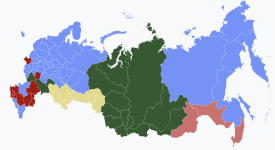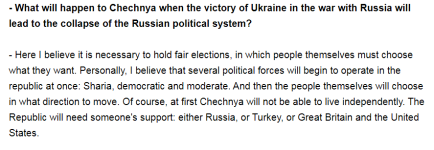Not Much, But It's Something
The United States of America, 2033.
The
Democratic Party: the party of Roosevelt, Kennedy and Obama is increasingly hearkening back to its halcyon New Deal Coalition days. I mean, the parallels are there - an economic recession, dominating majorities across the nation, expansionist regimes in Europe and Asia ...
The Progressives: Increasingly the leading wing of the Democratic Party, the broad-tent faction is the ideological home of anyone between Jon Ossoff and Alexandria Ocasio-Cortez. While they have become the quiet majority, it'll be some time until they become as entrenched as ...
The New Democrats: Once boasting the likes of Obama and Pelosi (and later Jeffries and Harris), the centrist wing of the center-left has been somewhat dislodged from pole position post-Sixth Party System. Still, it remains a major faction thanks to its deep roots and monied interests.
The Communitarians: The new kids on the block are ardent supporters of stuff like agricorp regulations, but remain ever-so-silent on social issues. Will probably be a major player in a decade or two, but until then expect Fredrickson to tie everything back to farming subsidies.
The Blue Dogs: Oh how the mighty have fallen. Once, they boasted such statewide institutions as Kent Conrad and Joe Manchin; now, they're down to Jared Golden and a handful of representatives. Their social ambivalence turns off the progressives, their fiscal conservatism alienates the communitarians, and the New Dems still remember their blocking BBB at every turn. All in all, it's all looking a bit glum.
The Republican Party: turns out, there's not much to do but tear each other to shreds when half of your rising stars lose re-election and half your governorships flip in one midterm. Have they forgotten about the midterms? It probably doesn't matter.
The Reaganites: Jumped onto the Trump train when it was going fine, then jumped off when Gabbard blew the economy to shreds. Think Ron DeSantis and Brian Kemp, or more recently Frank LaRose. Doesn't look like they're going anywhere, though it's unclear what is keeping them around.
The Trumpists: Andy Ogles is shouting about how this wouldn't have happened if the Gabbard-era GOP had stuck with being "the party of Trump", so it seems the purity trials have well and truly begun. They've still got an influence, but it seems that the RNC has its knives out for them.
The Moderates: Somewhat diminished after Chris Sununu lost re-election and Lisa Murkowski ragequit the Senate, but they seem to be making a comeback statewide - particularly, the upcoming Connecticut special senate election. Whether Erin Stewart turns out to be another Allan Fung remains to be seen.
The Libertarians: The social liberals went to the Democrats, the Never Trumpers went to the Republican moderates and the Mises Caucuses are just Trumpists, which leaves only the most insane of AnCaps. Woo-hoo.
The Patriotic Front: And now, the insane asylum. The same people that called the murder of Vanessa McCoy a "strike against groomerism" and united the various militias hiding in the Palouse boonies. The psychos demanding a "holy crusade" against the Ossoff administration and the "deep state".
Everyone else: The Republicans practically disintegrated and no one other than the Big Two could win an electoral vote? Christ.
The People's Party: Mostly the old Green Party. Not really a major player anywhere outside of the PNW, Chicago, and Vermont, but they have gotten demsocs across the line in a few primaries.
The Forward Party: Contrarian neoliberalism really isn't as popular as it used to be.
The Traditionalist Worker's Front: This is where all the Dore fans went after Belden hijacked the MPP. Not doing too well now that Hinkle's jumped ship and Maupin's fled to Thailand. Essentially, it's genocide denial and social reactionaries, all dressed up in red.
The United Utah Alliance: Chugging along nicely after they joined up with the Utah Democrats. Still only got 35% in the gubernatorial race, though.
The Green Party: Their 2032 campaign plank called all meat-eaters part of a "Holocowst" (yes they added the italics) and called for full disarmament of the American armed forces, so how well do you think they did?




